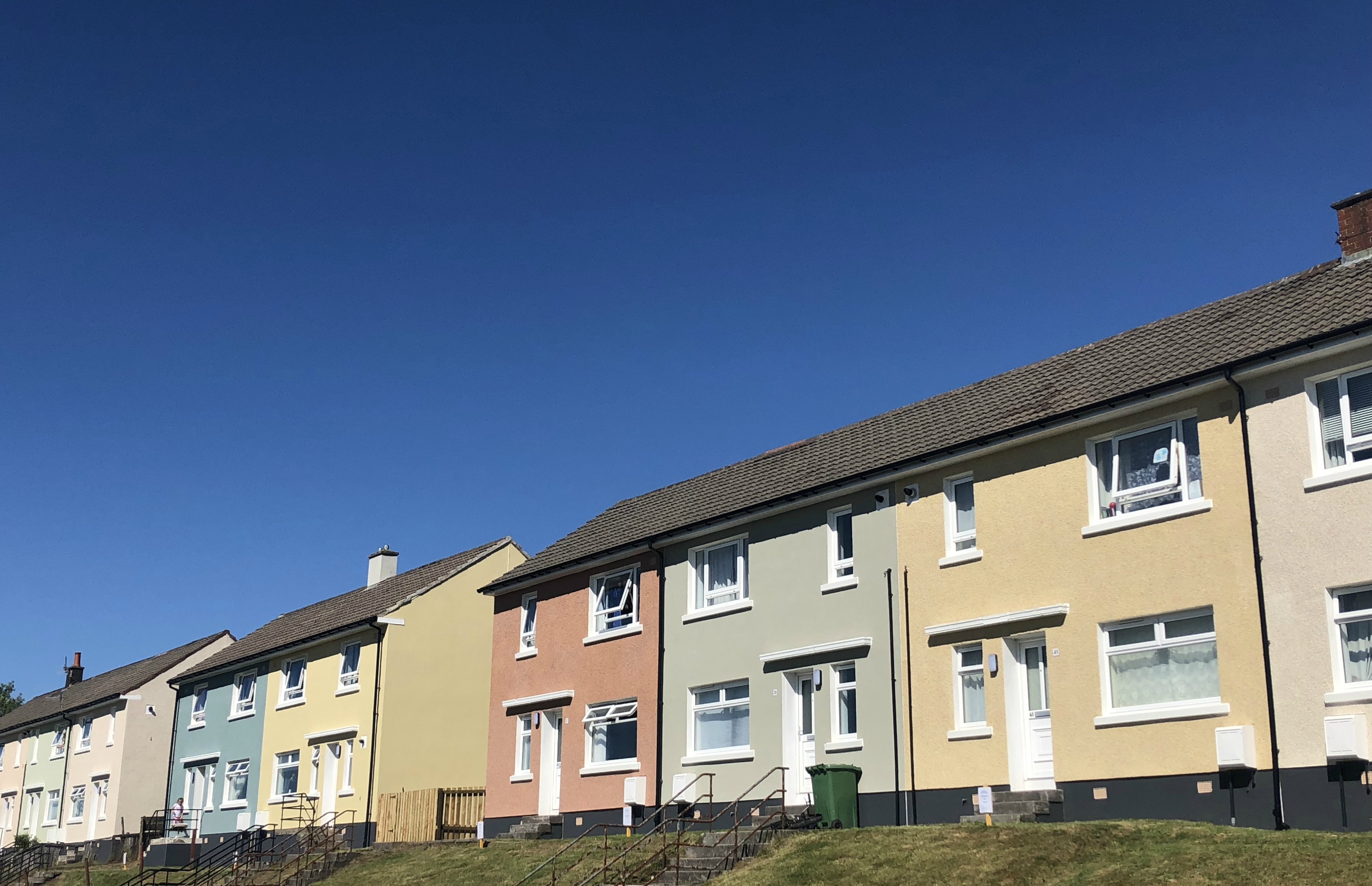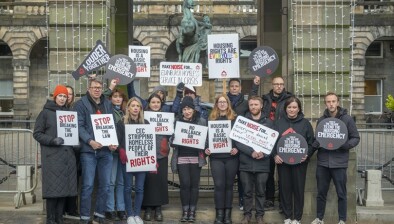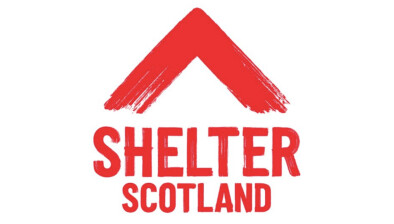Council housing rent arrears up 14% in a year
The total amount of rent arrears on all council properties in Scotland has increased by 14% in a year as the number of council tenants in arrears increased by around 3%, official figures have revealed.

A council housing development in East Ayrshire
Scottish Council Housing Income and Expenditure statistics for the year 2018/2019, published by Scotland’s Chief Statistician, show that rent arrears on all council properties totalled £74 million in March 2019, up £9m (14.0%) on last year. This increase represents 6.2% of the total income from council properties.
During the same period, the number of council tenants in arrears has increased by around 2,940 tenants or 3% to 102,702 and the number of former tenants in arrears decreased by around 2,180 tenants or 7.0% to around 30,400.
In 2018-19 budgets, councils wrote off nearly £10.8m of outstanding rent as unrecoverable, compared to £10.1m in the previous year.
Elsewhere, income from council houses was £1.21 billion in 2018-19. Of this, around £656m was spent on housing management and maintenance and £277m on loan charges. The surplus of £234m was invested in housing capital projects, including new build council houses and enhancing existing stock.
Provisional estimates show councils invested £738m in housing capital projects including £286m on new council houses and £389m on enhancement to existing council houses.
There were 311,240 council houses in Scotland in March 2019, which is an increase of around 1,100 houses since March 2018. This is forecast to increase by 1,300 by March 2020.
Other key findings include:
Housing management and maintenance
The average amount spent on the day-to-day management and maintenance of council housing was £2,080 per house in 2018-19.
Council rents
In 2018-19 average council rents ranged from £60 per week in Moray to £97 per week in the City of Edinburgh. Tenants paid an average of £72 per week to rent their homes in 2018-19, an increase of just over £2.00 or 3% per week since 2017-18.
Income from Housing Benefit
In 2018-19, rent rebate subsidy for council house tenants from Housing Benefit was around £519m or 45% of total income from standard rents. This has decreased each year since 2014-15 when it was 57%. In 2018-19 rent rebate subsidy as a proportion of standard rents varied from 30% in East Lothian and the Shetland Islands to 60% in Renfrewshire.
Housing debt
Councils spent £277m on HRA loan charges: interest, capital repayment and loan fund expenses, in 2018-19. Total council housing debt stood at £3.8bn in 2018-19 an increase of around £255m or 6.0% on the previous year. Councils borrowed to improve and build council houses. Council housing debt is forecast to rise to £4.3bn up £480m in 2019-20.
Capital expenditure
Councils’ provisional housing capital expenditure was estimated to be £738m in 2018-19. This included just over £389m on improvements to existing council houses and £286m on new council houses. This expenditure is in addition to the day-to-day maintenance referred to above.
Commenting on the statistics, Graeme Brown, director of Shelter Scotland, said: “A 14% rise in arrears is very worrying as it presents a direct threat to councils’ revenue and therefore undermines their ability to invest in building more council homes.
“Combined with the impending post-2021 cliff-edge on plans for council house building, the issue of how new council homes are to be funded in the long-term needs to be looked at imminently.
“Building enough social homes to meet demand across Scotland is the only way Scotland can combat its housing emergency.”
Mr Brown added: “The fact that 1 in 3 council tenants across Scotland are now struggling with rent arrears is deeply concerning and is yet more evidence of people on lower incomes struggling to make ends meet and keep a roof over their heads.
“A combination of austerity cuts, welfare reform, low incomes and job insecurity are the main drivers behind these worrying figures.
“We urge councils to do all they can to help people struggling with their rent and to only use eviction as the last possible option after all other ways of helping tenants have been tried.”








